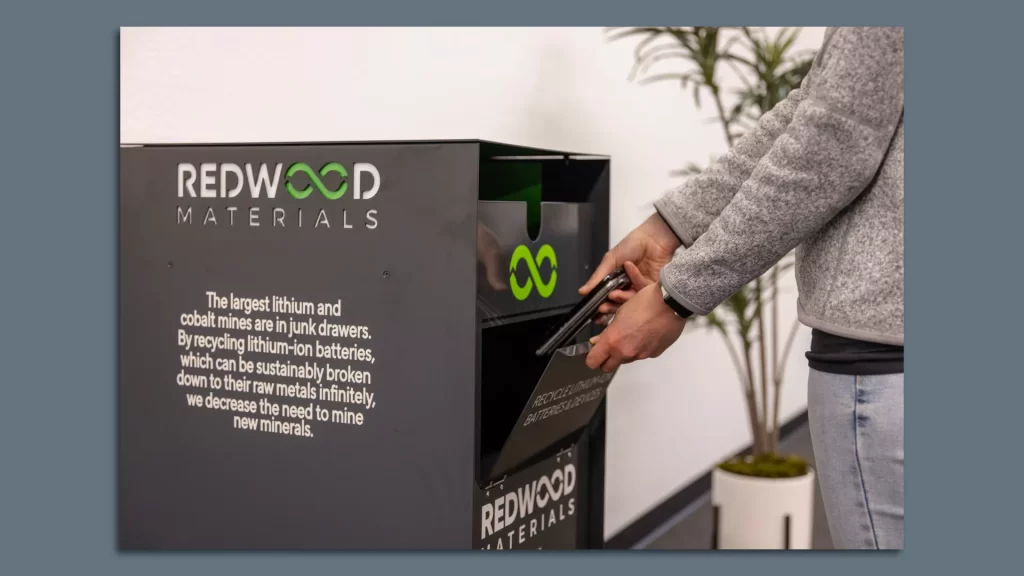
Audi dealers are starting to collect household electronics such as old laptops and phones so they can be recycled into electric car batteries.
Why it matters: With global demand for lithium-ion batteries expected to grow by more than 500% in the next decade, it’s one way to help seed creation of a domestic battery supply chain as envisioned under the climate, health cost reduction and tax law enacted in August.
The big picture: Long term, the auto industry is aiming to create a closed-loop supply of critical battery materials that can be reused in new batteries, reducing the need for imports and avoiding further environmental damage from mining.
What’s happening: The consumer recycling program is a partnership between Volkswagen Group of America and Redwood Materials, a battery recycling startup that has been sounding the alarm about a shortage of battery minerals to meet EV demand.
Redwood is already partnering with the German automaker to recycle end-of-life batteries from VW and Audi electric cars. It has similar arrangements with Toyota, Ford, Volvo and others.
This is the first time an automaker is collecting household lithium-ion batteries and rechargeable devices that can be recycled domestically to create new electric vehicle batteries.
How it works: Lithium-ion batteries contain varying amounts of critical minerals such as cobalt, copper, nickel and lithium — metals that can be recycled almost infinitely.
Since the metals don’t change or degrade, old devices can become new EVs without any performance or battery life tradeoffs, according to Redwood CEO J.B. Straubel, a co-founder of Tesla.
Yes, but: Less than 5% of rechargeable batteries in devices such as cell phones, laptops, e-bikes, e-scooters, electric toothbrushes, vacuum cleaners and power drills get recycled today — mostly because it’s just not easy to do.
The bottom line: Redwood and Audi are trying to make recycling a whole lot easier, which could limit the need for mining, increase domestic manufacturing and make EVs cheaper — and more sustainable.
























